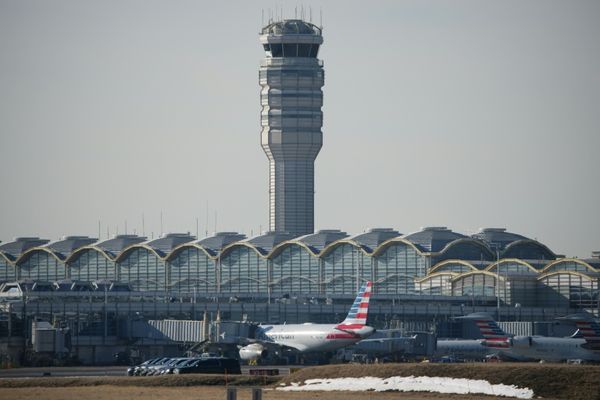
Writing almost 100 years ago, the great John Maynard Keynes predicted the most significant problem confronting workers in the 21st century would be one of irreducible boredom, because — so the thinking went — climbing living standards would inevitably confine the average working week to 15 hours.
Far from suffering an excess in leisure time, however, the permanent condition of the modern age for many workers in Australia resembles something closer to vassalage. Exhaustion is rampant, real wages are falling, insecure work and unpaid overtime are rising, and wage theft is rife.
From this vantage point, the greatest difficulty many workers are forced to contend with is not boredom per se but that posed by the daily sundering of the hard-won and stinting labour protections their forebears secured.
“This is the degradation of working conditions driven by employer practices,” said Professor Joo-Cheong Tham, an expert in labour law with the University of Melbourne and who has ties to the National Tertiary Education Union (NTEU).
“Crushing work hours is one, which is compounded by the digitalisation of work, [while] wage theft is another. Underpinning all this is at best a neglect and at worst a contempt for workers.”
Stolen wages, of course, are nothing new in Australia. What is new, says Tham, is the sheer, systemic prevalence of wage theft across the workforce.
As the Fair Work Ombudsman pointed out in Senate estimates last week, the notion five years ago that highly sophisticated corporate sector employers (with the obvious resources to understand their workplace obligations) would be engaging in systemic underpaying of workers was more or less considered fanciful.
Five years on and wage theft scandals have been witnessed in the ABC, the Commonwealth Bank, NAB, and in large retailers including Optus, Telstra, Bunnings, Target, 7-Eleven, Coles and Woolworths, as well prominent law firms and restaurants, an array of smaller retailers, and even some NGOs.
Perhaps the only material category omitted from that list is the most surprising of all, the tertiary sector, which counts the country’s most prestigious sandstone universities among its principal offenders.
Some, like Tham, are inclined to view this phenomenon as part of the broader assault visited by employers on employee conditions to increase profits, while others — as a recent Senate inquiry heard — consider it the final, logical frontier of worker exploitation in a culture predicated on paying “as little as possible for as much work as possible”.
Either way, revelations this week that some $108 million in wage theft claims have been levelled against universities since 2020 has put paid to the argument the incidence of wage theft in universities is merely an aberration, demonstrating instead that it’s a deliberate design feature of the business model of these institutions.
“The argument it’s by accident or inadvertent is increasingly hard to swallow,” Dr Alison Barnes, the NTEU national president, told Crikey. “It might have been the case when these cases were first coming to light, but universities have had a number of years now to get their houses in order.”
“It’s a damning indictment of these esteemed public institutions, really.”
Lending credence to this view is the most recent wage theft litigation launched by the Fair Work Ombudsman against the University of Melbourne, the so-called “poster child for wage theft” in tertiary institutions.
There, the Fair Work Ombudsman is alleging that a series of breaches of enterprise bargaining agreements between 2017 and 2019 were committed with the university’s express, tacit or implied authorisation, despite the contraventions being repeatedly drawn to its attention from 2017.
The university has already been required to repay a staggering $45 million in stolen wages to date, including a backpay claim of $22 million late last year.
Notwithstanding the former government’s antagonism towards universities, it’d be tempting but ill-considered and wrong, Tham said, to link the scourge of wage theft in universities to real or perceived budget cuts, given the total revenue of the sector sat just shy of $39 billion in 2021, up from $35.2 billion the year prior. Indeed, the University of Melbourne has spent close to $2 billion on its buildings over the past decade alone.
“Melbourne University is the wealthiest institution in terms of net assets [but] it’s also the wage theft capital of the university sector,” he said. “This tells you wage theft isn’t about [lack of] resources; it tells you something more about corporate priorities.”
It’s a sentiment broadly reflected in the concluding remarks of the recent Senate inquiry into wage theft, which found systemic wage theft was invariably a “deliberate decision” on the part of “businesses that participate in a race to the bottom to bring down wages and increase profit”.
To this end, Tham said it was clear universities had engaged in a deliberate strategy of ensuring their workforces comprise mainly insecure workers, who by definition are more vulnerable to exploitative workplace practices due to their reticence to report workplace abuses.
Barnes, for her part, said the rampant wage theft witnessed in universities demarcated the extent to which university leadership had abandoned all pretence of being a force for public good.
“It has a toxic impact not only on staff but on their teaching quality and their academic freedom,” she said. “The flow-on from that is the way it hinders universities from helping society solve the challenges of the day, such as the climate crisis and cures for pandemics.”
In other words, it’s a phenomenon that risks rendering Australia more unequal, more divided, more vulnerable, sicker, less knowledgeable and less equipped to meet the defining problems of the future.
In a nod to an election commitment, the Albanese government told Crikey it would introduce legislation to criminalise wage theft by year’s end, as well as more broadly consider other measures to enhance regulatory and workplaces relations in the tertiary sector as part of its promised universities accord.
Yet be that as it may, the failure to expressly mention any of those considerations in the 40-page discussion paper on the accord (released Wednesday) has caused some consternation within the union movement.
“It’s clear we’re going to need to make sure we push very, very hard for workers’ rights to make sure the concerns of staff across our public universities are heard,” Barnes said.
“We obviously want change as quickly as we can. So we will need to really press the reprehensible, reckless indifference of universities to their staff, their students, the future of their institutions and its impact on society.”
And it’s precisely this, you might venture to say, that Keynes failed to foresee: the ferocious privileging of profit by employers above everything and the way in which that nudges all but the very wealthy to work more and more as pay and conditions slip by the wayside.







